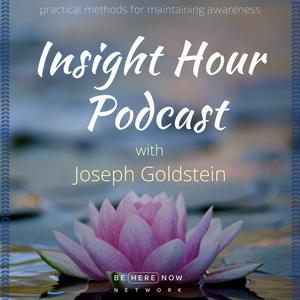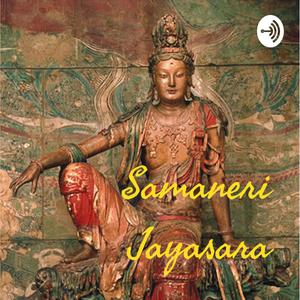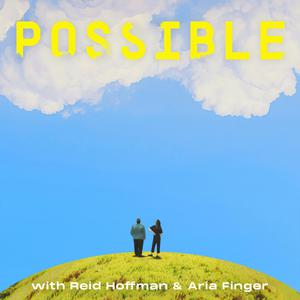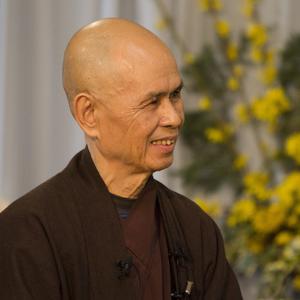
Pariyatti
[email protected]
Pariyatti exists to bring people into contact with the teachings of the Buddha. We provide resources in the Theravāda tradition, and support Pāli language students and Vipassana meditators, in the tradition of Sayagyi U Ba Khin as taught by S.N. Goenka.
- A Household Tradition by Patrick Given-Wilson
A Household Tradition by Patrick Given-Wilson
This talk by Patrick Given-Wilson was given for the European Dhamma servers' meeting in Spain, June 2024. The talk is followed by a Q&A session.
by Patrick Given-Wilson
2024
62 minutes 2 secondsListen to Streaming Audio
Your browser does not support the audio element.Audio copyright, 2024 Pariyatti
View the video version of this talk at Pariyatti.
All works by Patrick Given-Wilson.
View more books and audio resources available in the Pariyatti bookstore.
3 October 2024, 8:54 pm - The Simpler Side of Buddhist Doctrine by Kassapa Thera
The Simpler Side of Buddhist Doctrine by Kassapa Thera
In the Holy Books are many sermons, long and short, full of advice to the average layman. Notable amongst these is the Sigālovāda Suttanta, known as “the Layman’s Vinaya” which details correct behaviour for the good layman. Excellent though all such sermons are, none can surpass the brief simple appeal of the words to Nakula’s parents, which advise the cultivation of four things: Saddhā, Virtue, Generosity and Wisdom.
A striking thing in the Buddha-dhamma is that here we find naught of “Thou shalt” or “Thou shalt not.” When once it is realized that selfishness and self-indulgence cause all our woe, then a wise one strives for self mastery. Sīla is the mastery of speech and action. Of his own free will, the Buddhist “pledges to observe” this precept of virtue, and that. The minimum number of such precepts of virtue that the good Buddhist should observe is five: (1) I undertake to observe the precept to abstain from destroying the life of beings; (2) from taking things not given; (3) from sexual misconduct; (4) from false speech, and (5) from liquor that causes intoxication and heedlessness.
The Buddhist has no impossible postulates; he tries to see, as his teacher taught, “things as they really are.” He looks at the world around him and sees that all, all is transitory there. He sees that what is transitory is bound to be sad. All that we love is passing away, and such parting from the loved is suffering. And we, we too are part of the passing show—with greying hair, falling and decaying teeth, disease and death looming ahead—it is all sad. The Buddhist sees that, to what is transient and sad, one clings in vain, and in all this we can see naught of which he can say—with assurance as to the permanent value of such statement—“This is me, this is mine, this is a soul.”
by Kassapa Thera
2024
63 minutes 6 secondsListen to Streaming Audio
Your browser does not support the audio element.Audio copyright, 2024 Pariyatti
View this audiobook and more information at Pariyatti.
View more books and audio resources available in the Pariyatti bookstore.
23 September 2024, 10:53 pm - Parents and Children: Transmitting the Buddhist Heritage across Generations
Parents and Children: Transmitting the Buddhist Heritage across Generations by Ven. Medagama Vajirañāṇa Nayaka Thera
One essential requirement for a happy society is that the individuals constituting the society must have tranquillity of mind. This tranquillity of mind arises from purity of thought, word, and action, which means the observance of an ethical lifestyle based on the Five Precepts. As human beings we are unique in our ability to see the difference between good and bad. We have the capacity to make moral choices and thereby to influence the pattern of our own lives and that of others. This influence is exerted through our thoughts, speech, and actions. If we can develop inner purity and strength, then we have established the basis on which we can give what is needed by others in all our relationships. It is up to us to create a safe and harmonious society.
by Ven. Medagama Vajirañāṇa Nayaka Thera
Narrated by Ethan Christy
2024
29 minutes 121 secondsListen to Streaming Audio
Your browser does not support the audio element.Audio copyright, 2024 Pariyatti
View this audiobook and more information at Pariyatti.
More by Ven. Medagama Vajirañāṇa Nayaka Thera.
View more books and audio resources available in the Pariyatti bookstore.
5 August 2024, 8:14 pm - Introduction to Vipassana by Patrick Given-Wilson
Introduction to Vipassana
This short introduction to Vipassana talk was given on June 29, 2024 at Bondi Beach, Sydney, Australia.
by Patrick Given-Wilson
2024
32 minutes 48 secondsListen to Streaming Audio
Your browser does not support the audio element.Audio copyright, 2024 Pariyatti
View more books and audio resources available in the Pariyatti bookstore.
5 July 2024, 11:28 pm - The Jewel in Mumbai by Bikram Dandiya
The Jewel in Mumbai by Bikram Dandiya
"The Global Vipassana Pagoda in Mumbai was built to mark the birth centenary year of Sayagyi U Ba Khin, the Burmese Dhamma teacher of Shri Satya Narayan Goenkaji. The monument is built in the Myanmar style of the Shwedagon pagoda, as a token of gratitude to that country where the essence of the Buddha’s teachings was maintained in its pristine purity, and from where it is now spreading throughout India, and via India to the rest of the world. Our Dhamma teacher Shri S.N. Goenkaji became the vehicle to make this happen. He was also our inspiring guide for every important aspect of this building project. Tremendous volition and effort went into the building of this staggering monument and it is interesting and educative to explore the journey.
"Mr. Bikram Dandiya has beautifully chronicled some of these experiences in his booklet, “The Jewel in Mumbai”, the story of the making of the crystal bud atop the Global Vipassana Pagoda. Although his story concentrates on a specific part of this enormous structure, it typifies the challenges and solutions witnessed by those of us closely involved in its creation. For example, experts had opined that it was not possible to construct a 325 foot wide stone dome without supporting pillars; the dome went up thanks to indigenous technology, using thousands of huge interlocking stones weighing 700 to 800 kg each, and now seemingly floating in the air!"
—M.M. Khandhar, 14th January 2020narrated by Bikram Dandiya
2024
23 minutes 35 secondsListen to Streaming Audio
Your browser does not support the audio element.Audio copyright, 2024 Pariyatti
Available at Pariyatti at https://store.pariyatti.org/jewel-in-mumbai as a papaerback, free PDF download, and free audiobook. In Hindi as a PDF download.
View more books and audio resources available in the Pariyatti bookstore.
26 April 2024, 8:08 pm - A Journey into Buddhism
A Journey into Buddhism by Elizabeth J. A. Harris
."The themes of the talks are rooted in my journey, as a Christian, into Buddhism. In the mid-1980s I felt the need to ’let go’ of my own religious conditioning to enter the world of another faith. It grew from a conviction that people with an interest in religion should not remain imprisoned within one framework but should explore others. The choice of Buddhism and Sri Lanka was a natural one for me. Buddhism’s emphasis on meditation and non-violence touched my own interests as a Christian, and a visit to Sri Lanka in 1984 had left me with the feeling that my link with the island was not finished.
I originally intended to be in Sri Lanka for one year. One year, however, became seven and a half, from 1986 until 1993. My aim throughout was not only to study Buddhism but to practise it. I did not consider myself involved in ’interfaith dialogue’ although I’m sure some perceived my actions in this way. I wanted to enter Buddhism on its own terms, as a human being rather than as a Christian."
narrated by Ethan Christy
2024
34 minutes 56 secondsListen to Streaming Audio
Your browser does not support the audio element.Audio copyright, 2024 Pariyatti
Available at Pariyatti: https://store.pariyatti.org/journey-into-buddhism-audiobook.
View more books and audio resources available in the Pariyatti bookstore.
17 March 2024, 9:32 pm - Deconstructing Constructions: The Role of Saṅkhārā in the Buddha’s Discourses
Deconstructing Constructions: The Role of Saṅkhārā in the Buddha’s Discourses by Bhikkhu Bodhi
.In this paper I intend to explore the Pāli term saṅkhārā, one of the pivotal concepts in the Buddha’s discourses. The Pāli word has such a rich gamut of meanings that merely to draw them out into the open sheds a flood of light on the Buddha’s understanding of reality. The word occurs in a variety of contexts that are subtly and intricately interwoven. To explore their contextual meanings and track down their interconnections will reveal the rigor of the Buddha’s philosophical vision and the coherence of his teaching in expressing that vision in language and concepts.
narrated by Jonathan Nelson
2024
50 minutes 48 secondsListen to Streaming Audio
Your browser does not support the audio element.Audio copyright, 2024 Pariyatti
Investigating the Dhamma as a book and eBook can be found at https://store.pariyatti.org/investigating-the-dhamma.
View more books and audio resources available in the Pariyatti bookstore.
26 February 2024, 11:35 pm - Your Best Friend
Your Best Friend: And Other Essays by M. B. Werapitiya.
"To understand ourselves, we must live with ourselves and know all about ourselves. The mind for that matter is flickering, fickle, difficult to guard and control and flutters like a fish taken out of its watery abode and thrown upon the land. Somebody causes you hurt and although the aggressor has disappeared from sight, the hurt grows within you and every so often keeps surfacing with an overpowering intensity to give you a warp. Then again, you see something that has captured your attention and your mind has instantly photographed it from every conceivable angle with a see-through lens, developed it in your mental dark-room, brought out the prints and enlargements with the skill of an expert cameraman and processor rolled into one. Similarly, all the sense faculties and the mind are of high sensitivity and respond to anything and everything exciting. If the degree of excitement is not sufficiently satisfying, you step it up with the use of drugs, intoxicants and poisons. This activity goes on unabated and makes of you a human derelict. A wise person living in his mind protects himself holding himself dear. Such a person whose senses are subdued, whose pride is destroyed and is free from corruptions, is calm of mind, speech and action and rightly knows, and is perfectly peaceful and equipoised."
narrated by Tejendra Patel
2024
38 minutes 45 secondsListen to Streaming Audio
Your browser does not support the audio element.Audio copyright, 2024 Pariyatti
View more books and audio resources available in the Pariyatti bookstore.
27 January 2024, 9:23 pm - Part 6 - Expanding Into New Frontiers by Bhikkhu Bodhi
Part 6 - Expanding Into New Frontiers from 'What Does Mindfulness Really Mean' by Bhikkhu Bodhi
.Mindfulness has traveled a long way from its homeland in northeast India. It has journeyed to the island of Sri Lanka, the river basins of southeast Asia, the mountain monasteries of China, Korea, and Japan, and the hermitages of the Himalayan kingdoms. But the last lap of its journey is without parallel. Today Buddhist meditation has been lifted from its traditional setting in Buddhist doctrine and faith and transplanted in a secularized culture bent on pragmatic results. Here it is finding new accommodations in urban meditation centers and even in busy hospitals, pain clinics, and treatment centers. Its teachers and practitioners are more likely to wear street clothing or white coats than ochre robes; they are more likely to hold degrees in medicine and psychology than in Buddhist philosophy and scripture. Meditation is being taught to help people obtain release, not from the cycle of birth and death, but from the strains of financial pressures, psychological disorders, and stressful relationships.
narrated by Jonathan Nelson
2023
6 minutes 58 secondsListen to Streaming Audio
Your browser does not support the audio element.Audio copyright, 2023 Pariyatti
'Investigating the Dhamma' as a book and eBook can be found at https://store.pariyatti.org/investigating-the-dhamma.
View more books and audio resources available in the Pariyatti bookstore.
23 September 2023, 4:41 pm - Part 5 - Clear Comprehension by Bhikkhu Bodhi
Part 5 - Clear Comprehension from 'What Does Mindfulness Really Mean' by Bhikkhu Bodhi
.While I said just before that clear comprehension plays a more prominent role in the contemplation of experiential phenomena, the refrain on right mindfulness shows that clear comprehension has been present to some degree all along. The formula describes clear comprehension as a constant entering each exercise virtually from the start. Whether contemplating the body, feelings, states of mind, or experiential phenomena, the meditator dwells “ardent, clearly comprehending, and mindful.”
narrated by Jonathan Nelson
2023
5 minutes 55 secondsListen to Streaming Audio
Your browser does not support the audio element.Audio copyright, 2023 Pariyatti
'Investigating the Dhamma' as a book and eBook can be found at https://store.pariyatti.org/investigating-the-dhamma.
View more books and audio resources available in the Pariyatti bookstore.
16 September 2023, 4:38 pm - Part 4 - What the Suttas Say by Bhikkhu Bodhi
Part 4 - What the Suttas Say from 'What Does Mindfulness Really Mean' by Bhikkhu Bodhi
.Nevertheless, despite my reservations about the use of “bare attention” as an alternative expression for sati, if we consider how mindfulness is to be practiced in the system laid down in the Satipaṭṭhāna Sutta, we can find considerable support for the idea that the initial task of sati is to “keep to a bare registering of the facts observed” as free as possible from distorting conceptual elaborations. The problem, as I see it, is not with conceptualization itself, but with conceptualization that ascribes erroneous attributes to the objects and the experiential act itself. An experiential event can be viewed as a field distributed between two poles, the objective datum and the subjective act that cognizes it. Ordinarily, on account of the spontaneous functioning of unenlightened consciousness, this polarity is reified into a sharp duality of subject and object. The subjective pole seems to coalesce into a substantially existent “I,” an ego-self that hovers in the background as an autonomous and independent entity. The objective pole presents itself as an object that is there “for me,” ready to serve or oppose my purposes; thus it becomes a potential object of craving or aversion. This process is what the suttas refer to as “I-making” and “mine-making” (ahaṃkāra mamaṃkāra). It is the task of meditation to dismantle this structure by penetrating the selfless nature of all phenomena, whether pertaining to the objective or subjective poles of the experience.
narrated by Jonathan Nelson
2023
9 minutes 10 secondsListen to Streaming Audio
Your browser does not support the audio element.Audio copyright, 2023 Pariyatti
'Investigating the Dhamma' as a book and eBook can be found at https://store.pariyatti.org/investigating-the-dhamma.
View more books and audio resources available in the Pariyatti bookstore.
9 September 2023, 4:33 pm - More Episodes? Get the App
- https://pariyatti.org
- en-us
Your feedback is valuable to us. Should you encounter any bugs, glitches, lack of functionality or other problems, please email us on [email protected] or join Moon.FM Telegram Group where you can talk directly to the dev team who are happy to answer any queries.
 Insight Hour with Joseph Goldstein
Insight Hour with Joseph Goldstein
 The New Yorker Radio Hour
The New Yorker Radio Hour
 The Ezra Klein Show
The Ezra Klein Show
 Wisdom of the Masters
Wisdom of the Masters
 Possible
Possible
 Thich Nhat Hanh Dharma Talks
Thich Nhat Hanh Dharma Talks